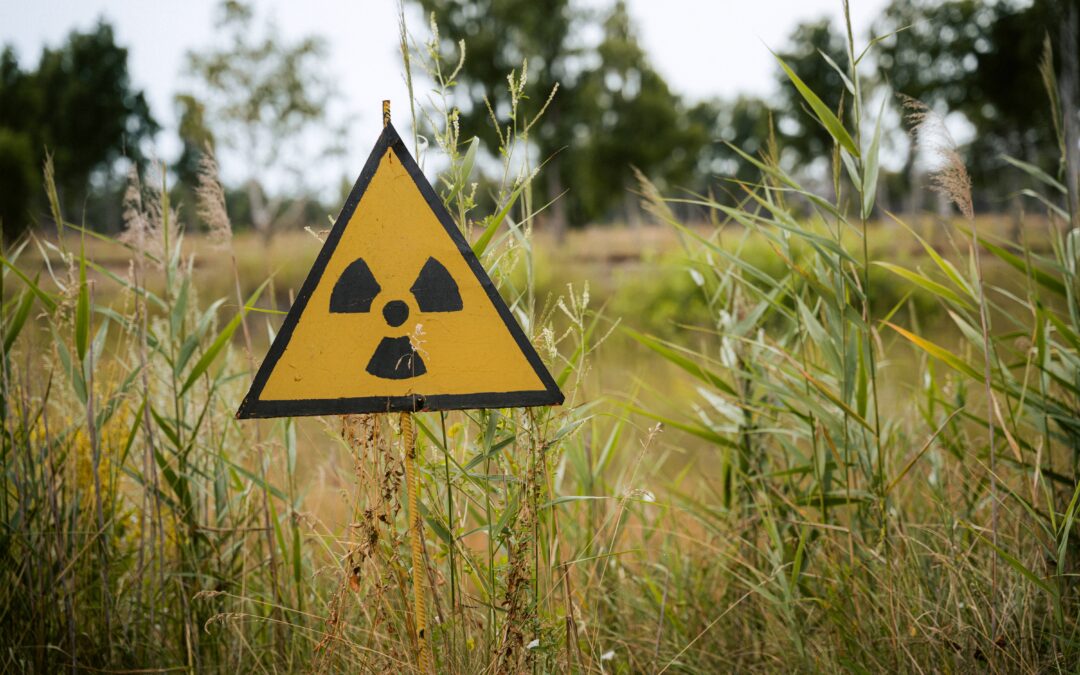Poland’s government has provided fire departments across the country with potassium iodide tablets that can be distributed in the case of a radiation emergency. The decision was made amid concerns over the security of nuclear power plants in neighbouring Ukraine.
“This is a standard procedure, provided for by law and applied in the event of a possible radiation hazard,” announced the interior ministry. “At the same time, we would like to inform you that at the present time there is no such threat and the situation is continuously monitored by the National Atomic Energy Agency.”
The ministry assured that “the services responsible for state security are on constant alert, and an adequate amount of potassium iodide is secured for every citizen of Poland”.
In the event of confirmed contamination, plans would go into motion to distribute the potassium iodide tablets, which help prevent the absorption of radioactive iodine by the thyroid gland. After the Chernobyl disaster in Ukraine in 1986, the Polish authorities also administered iodide to millions of citizens, in particular children.
📢 Komunikat #MSWiA na temat dystrybucji jodku potasu ⤵ https://t.co/DwlGFahm1p
— MSWiA 🇵🇱 (@MSWiA_GOV_PL) September 19, 2022
In March this year, Russian forces captured the Zaporizhzhia power station in Ukraine, which is Europe’s largest nuclear plant. Since then, there have been concerns over the upkeep of the facility as well as potential damage by continued fighting.
Enerhoatom, the operator of Ukraine’s nuclear power plants, also said that Russia had fired on Ukraine’s second largest nuclear plant, near the city of Yuzhnoukrainsk, overnight on Sunday.
Last night russian terrorists attempted to strike the South Ukraine Nuclear Power Plant in the Mykolaiv region. A missile fell 300 meters from the plant.
kremlin’s nuclear terrorism continues.
russia is the threat to the whole world. pic.twitter.com/aWhz8yNXWp— Defense of Ukraine (@DefenceU) September 19, 2022
On Monday, Poland’s National Atomic Energy Agency said that the shelling did not damage systems important for nuclear safety.
“All three units of the power plant are operating normally. There is currently no threat to human health and life or the environment in Poland. The Atomic Energy Agency has not noted any concerning indications from measuring equipment,” the agency tweeted.
Brak zniszczeń systemów ważnych dla bezpieczeństwa jądrowego po ostrzale okolicy Południowoukraińskiej EJ. W wyniku ostrzału nastąpiła krótkotrwała przerwa w dostawie prądu, uszkodzone zostały szyby w oknach budynków elektrowni. Wszystkie trzy bloki siłowni pracują normalnie. pic.twitter.com/5aKiY1eUft
— Państwowa Agencja Atomistyki (@PAAtomistyki) September 19, 2022
The decision to release iodide stocks from the government’s strategic reserves is made by provincial governors or the health ministry, according to Poland’s nuclear law. It should only be taken in the event of nuclear disasters after receiving the relevant communications from the authorities.
In the absence of any radiation risk, the National Atomic Energy Agency advises against the consumption of products with stable iodine, including so-called Lugol’s iodine.
In the early days of the war in Ukraine, however, the media reported that Poles, many of whom still remember the Chernobyl disaster, started to stock up on iodine supplies on their own, with pharmacies in Poland reporting increased sales.
In the first week after Russia’s invasion, the number of pharmacies selling iodine more than doubled, gdziepolek.pl, a Polish website that helps patients find the nearest pharmacy with a drug they are seeking, told Reuters at the time.
Main image credit: Kilian Karger on Unsplash

Alicja Ptak is deputy editor-in-chief of Notes from Poland and a multimedia journalist. She has written for Clean Energy Wire and The Times, and she hosts her own podcast, The Warsaw Wire, on Poland’s economy and energy sector. She previously worked for Reuters.




















